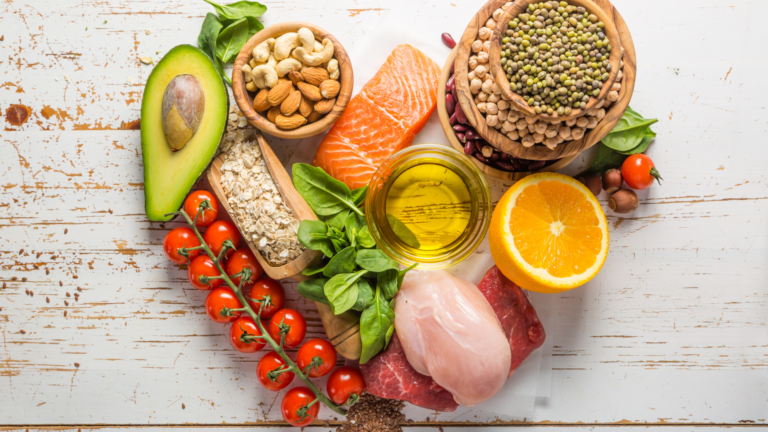Will I find a restroom in time?” is a question no traveller should have to worry about, yet for those of us with IBS, it’s often the first thought when stepping onto a plane.
As an IBS dietitian who also lives with IBS, I know too well the challenges of exploring new places while managing a sensitive gut. The good news is that having IBS or a food sensitivity doesn’t have to mean sacrificing your love for travel.
In this article, I share my top seven tips to ensure your adventures are not just memorable, but also kind to your digestive system. Read on to discover how to savour local cuisines, navigate restaurant menus, and maintain your gut health, so that you can embrace the world without compromising your well-being.
1. Start digging: destination research
The first step in preparing for your journey begins with comprehensive destination research. Where are you wanting to visit and what is the local food like? Do they use a lot of onion and garlic, or do they prefer herbs and spices? Do they eat traditional sourdough, or do they prefer rice-based dishes? Do many people speak English?
If you can, when booking accommodation look for self-contained options whenever possible. Having access to a kitchen allows you to prepare some of your meals, reducing your overall load and giving you more room to move when eating out. It’s good to know that food sensitivities are threshold related. By making some of your own meals and snacks you will have more room to move when you go out to eat. Also, making some of your own meals saves money and reduces food anxiety. You could even do an online grocery order before you leave, and have it delivered the day you arrive.
2. Pre-Trip Logistics
Reach out to your hotel or accommodation and inquire about their kitchen facilities, meal options, neighbourhood grocery stores and nearby restaurants and cafes that might be willing to accommodate special dietary requests. Apps like Google maps and Trip Advisor are worth investigating for reviews or join a destination specific Facebook community and seek suggestions from the locals. Comprehensive research and planning will help you feel more relaxed leading up to the trip and help to transform your travel experience into a seamless culinary adventure.
3. Tech Toolkit: essential travel apps
In non-English speaking countries, language barriers can make communicating your dietary needs or reading menu’s challenging. Google translate was my number 1 most used app on a recent trip to Spain & Portugal. Use the Google Translate app to:
- Translate key phrases related to your diet e.g. “no onion or garlic”
- Create a list of low FODMAP foods in the local language that you can use at the grocery store.
- Help you read the menu at cafes & restaurants.
Other useful apps:
- “Google maps” allows you to download local maps to use offline.
- “Toilet Finder” app that locates the nearest conveniences. If in Europe, carry a few coins to pay for public bathrooms.
- “Trip advisor” for local food suggestions and reviews
- The app for your cash passport money card.
- A currency convertor app – I like “Units Plus”.
- Nerva or a guided mediation to keep your gut brain axis calm.
4. Pack your IBS travel essentials
If you’re able, pack some non-perishable breakfast & snack basics like cereal, oats, spreads, nuts, rice crackers, muesli bars and bread to take with you. Having familiar options readily available ensures you always have suitable choices.
You can also pack essential kitchen utensils such as peelers, can openers, or even travel rice cookers. Portable coolers and insulated flasks can also help you store perishable items and carry snacks and meals with you.
As well as remembering to pack your prescribed medications, also include any supplies you use to manage symptoms e.g.:
- A fibre supplement (e.g. psyllium or PHGG)
- Anti-diarrhoea medications (e.g. gastro-stop)
- A laxative (e.g. Movicol sachets)
- A heat bag
- Peppermint oil capsules or degas
- Buscopan
- Lactase enzymes
Poor sleep can also make you more sensitive to food triggers, so if you are traveling across time zones, consider melatonin to help with the adjustment, get a good night’s sleep and wake up refreshed.
5. Dining out
Part of traveling is exploring the local cuisine. If you’ve been on a low fodmap diet for some time, you probably have a bit of a routine with eating out which of course you can also follow when you travel.
My top tips include:
- Check out the menu online or phone ahead.
- Have a low FODMAP snack before you go.
- If you’re in an English-speaking country, speak to the waiter on arrival.
- If you’re in a non-English speaking country, you could carry a card with a list of your main triggers in the local language.
- Focus on your big triggers and the things you can’t pick out of a meal. You don’t want to overwhelm them with too much on your no-go list.
- Pick and choose what you don’t want to miss out on and what you are happy to leave behind.
6. Nurture your gut brain axis
Your gut-brain axis and the nerves around your intestines determine just how sensitive your gut is to FODMAPs and other food triggers. Meditation, walking outside, gut-directed hypnotherapy, singing and other calming activates target your vagus nerve and calm the gut. This can reduce severity of symptoms or even prevent them happening in the first place.
7. Mindset Matters: embrace imperfection
Most people find that when they are away, they do much better than when they are at home, so don’t be afraid to push the boundaries and try some of the local foods. After all, this is part of experiencing the culture. Although food intolerances cause symptoms, they don’t damage the body, so if you accidently or intentionally eat a high FODMAP food, that’s ok. Limiting your diet to manage your IBS is all about improving quality of life. Sometimes the best quality of life is to eat the food and sometimes it’s about limiting the food. Either way, this is your choice and yours alone. Who knows, you may just get a pleasant surprise.
Final Thoughts
Traveling with IBS might require some extra planning, but with these tips and a proactive approach, you can enjoy your travels without compromising your fun. By researching, communicating effectively, and being prepared, you can savour the joys of exploring new places while prioritizing your well-being.
Now, instead of worrying about finding the nearest restroom, you can focus on finding the best local coffee shop!
Ready for Personalized Support? Remember, I’m here to support you on your low-FODMAP journey and would love to work with you to create personalised strategies to address your specific concerns. Don’t hesitate to reach out to us and book an appointment today!
Have a great trip and happy eating!







